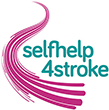View text alternative
Recognising the warning signs
- Staying in bed longer than usual.
Try setting your alarm clock to encourage you to get up - Not bothering to eat.
Try giving yourself a treat. You should speak to your GP if a loss of appetite goes on for any length of time. You can find out more about this in our Emotional support section. - Not wanting to socialise. Let your family or friends know this is a warning sign. Have their numbers on your phone. Phone the CHSS Advice Line Nurses on 0808 801 0899 for information on local social groups.
- Problems sleeping. Try relaxation and a hot milky (non-caffeinated) drink before you go to bed. You should speak to your GP if this goes on for any length of time. For more information please see our section on Keeping Well.
- Not bothering with appearance, can’t be bothered to wash, dress or comb your hair. Allow family and friends to let you know.
- Lacking in motivation, can’t be bothered doing anything. Set yourself goals. We will be looking at this shortly.
- Feeling fatigued.
This is normal after a stroke. Don’t do too much – ‘pace and rest’. Becoming overtired can act as a trigger towards a setback. For more information please see our section on Keeping Well. - Feeling upset, frustrated, stressed, anxious.
Mood changes are normal after a stroke. Speak to your GP. You may be referred to see a clinical psychologist who can work with you to self-manage these changes. For more information please see our section on Emotional support.
Something to think about
Do any of these warning signs sound familiar to you? You might want to discuss these with your GP or friends and family.
Let’s hear from James about how he recognised his warning signs.



